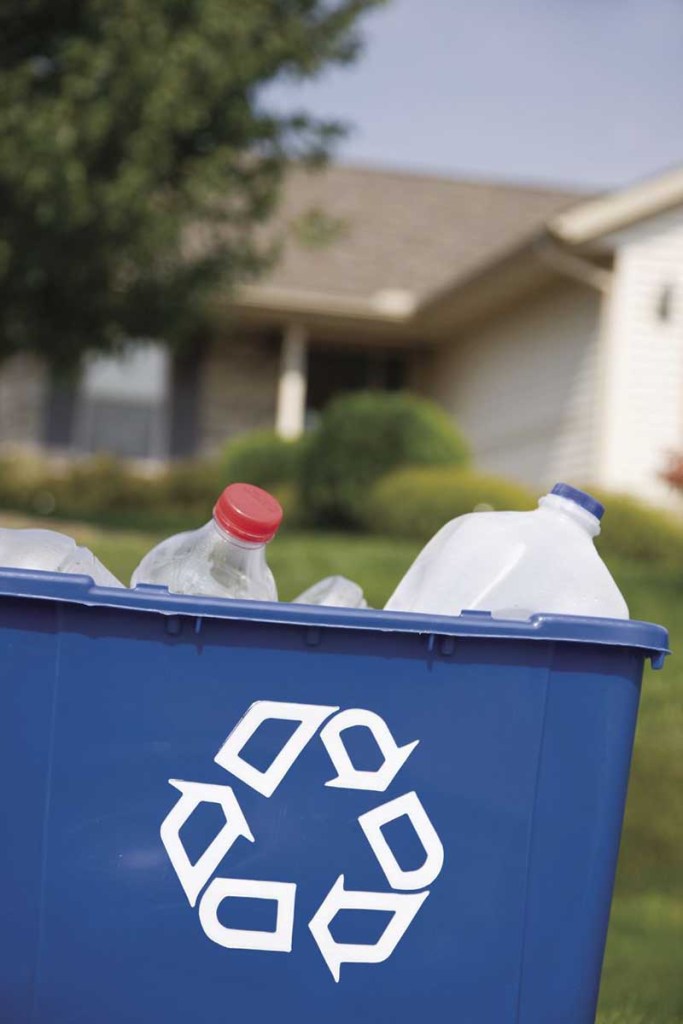Pell City recycling on the rise, waste decreasing
Published 12:27 am Thursday, June 20, 2019

- recycle
In an annual report provided to Pell City officials, Advanced Disposal has observed a 38 percent increase in recycling tonnage from 2015 to 2018 and a 4.3% drop in overall waste material collected.
In 1991, Alabama established a goal of diverting 25 percent of all trash collected in the state from landfills, but has faced some long-standing barriers to reaching this goal. In 2018 the Alabama Department of Environmental Management (ADEM) reported the goal achieved up from unofficial reports of nine percent in 2012, with recycling rates of about 16 percent.
On April 15, 2008, Alabama passed waste management reform, which included a $1 per ton fee for all waste material buried in landfills in Alabama. Prior to the Solid Wastes and Recyclable Materials Management Act, Alabama hosted some of the cheapest landfill prices in the nation, making it an attractive location for companies all over the nation to dump their waste, and developers began to plan to accommodate that demand.
The bill also allows the fees collected from landfills to fund ADEM’s recycling programs, which has enabled Alabama to nearly double its recycling rate in only seven years since its last unofficial evaluation. Before ADEM implemented a system to track recycling rates with a biennial report in 2013, third party analysts conducted reviews which placed it at just nine percent in 2012.
The grants fund local recycling programs in communities across the state, supplying needed equipment such as collection bins and machines to sort and bale recyclables at facilities. ADEM has increased its personnel and improved its ability to enforce waste management in the state.
Alabama has also faced less impact from recent foreign policy changes towards recyclable material. In January 2018, China banned the import of most recyclable materials into the country, and suddenly tons of reusable materials were stuck in the US. In Troy, KW Plastics recycles plastics into pellets which can then be repurposed for just about anything, and Constellium USA in Muscle Shoals converts aluminum waste for use in Budweiser and Pepsi cans.
Despite these strides, Alabama still falls short of the national averages for both landfill diversion, recycling and implements no large-scale composting programs. Birmingham, Montgomery, and Huntsville plan to reform their local recycling programs to divert more trash from landfills. In 2016, the Southeast Recycling Development Council compiled a report on Alabama’s recycling deficiencies and outlined steps to improve.
In Pell City, recycling in made available through Advanced Disposal. Residential customers who wish to contribute to their community’s positive trend toward recycling can request a recycling bin through their website at http://pell-city.com/garbage/ or by calling the Street Department at 205-884-8267. The city now deploys as many as 1200 recycling bins since they began distributing them in mid-2017.
Recycling bins come at no additional charge. Advanced Disposal may collect paper products such as newspapers and magazines, cardboard, aluminum, plastic containers labeled #1 and #2, milk and juice containers. Recyclables should be clean and free of spoilable materials, and no glass is allowed. Materials should be placed in the bin loosely without a bag, and the bin should be set at the curb like other garbage bins.


